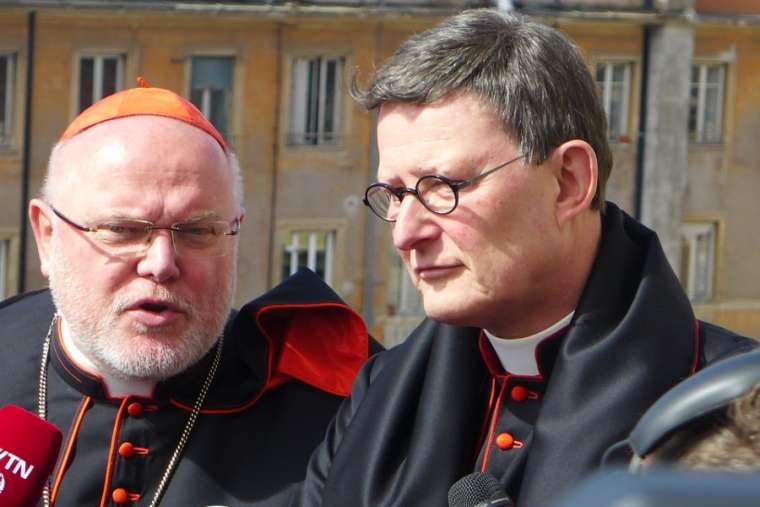German Bishops rejected plan for Francis-style ‘Priority of Evangelization’ in synodal path
The German bishops have rejected an alternative proposal for a synodal process centered on the “priority of evangelization” called for by Pope Francis.
Sep 20, 2019

By Ed Condon
The German bishops have rejected an alternative proposal for a synodal process centered on the “priority of evangelization” called for by Pope Francis.
The proposal was voted down in an August meeting of the executive committee of the German Episcopal Conference, during which they decided to continue with plans for the creation of a Synodal Assembly under the joint leadership of the head of the German bishops’ conference and the Central Committee of German Catholics (ZdK).
Like the plan developed under the leadership of Cardinal Reinhard Marx of Munich, the alternative plan would have created a Synodal Assembly made up of bishops, other clergy, and laity. It would also have sponsored a number of Synodal Fora to discuss and develop responses to pressing ecclesiastical issues.
But, unlike the Marx plan, the alternative proposal was specifically drafted to include the instructions of a June letter of Pope Francis to the German faithful, which laid out clear priorities for an authentic synodal process.
The draft plan was submitted to the Permanent Council of the German Episcopal Conference at its Aug. 19 meeting. It was jointly proposed by Cardinal Rainer Woelki of Cologne and Bishop Rudolf Voderholzer of Regensburg.
CNA has learned from officials and observers present at the meeting that the proposal was rejected in a 21-3 vote with three members abstaining. The committee is made up of the sitting diocesan bishops of the country.
The document proposed “a comprehensive and thoroughgoing spiritual renewal consistent with the universal Church and its faith in the sense of the ‘Priority of Evangelization’ called for by Pope Francis,” who warned the Germans against a synodal approach focused on bureaucratic and structural considerations without being animated by the Church’s essential mission to spread the faith.
While it mirrors many of the structural proposals of the Marx plan, including the involvement of the ZdK, the Woelki-Voderholzer plan placed the pope’s call for communion with the universal Church and the primacy of evangelization at the center of the synodal deliberations.
Both plans called for the incorporation of lay groups, including the ZdK, as well as representatives from religious orders and the diocesan clergy.
But unlike the Marx plan, which incorporated all the bishops of the country into the Synodal Assembly, in which they form a minority of members, the Woelki-Voderholzer would have limited episcopal membership to the 27 diocesan bishops and 13 auxiliary bishops elected by their peers. According to sources present in the room, Woelki and Voderholzer told the other bishops that their intention was to underscore that the bishops’ conference remained a separate and authoritative body whose authority was not subsumed into the Assembly.
In his June letter, Pope Francis warned against a version of synodality that only proceeds “from the bottom up,” and lacks a complimentary “synodality from top to bottom that allows, in a specific and singular way, for the collegial dimension of the episcopal ministry” in the universal life of the Church.
Unlike the Marx plan, the Woelki-Voderholzer proposal also called for observers from the Congregation for the Doctrine of the Faith and the Pontifical Council for the New Evangelization to attend the synodal sessions, and would have had provided for the full bishops’ conference to consider each synodal resolution, amending and voting on them as necessary, before submitting each resolution to Rome for “official review and recognition.”
In contrast, the Marx plan, which was approved during the August meeting, defines the Synodal Assembly as “the superior body” which “has deliberative power.” While the statutes of the Marx plan note that the Assembly does “not affect the power of the episcopal conference and of individual diocesan bishops,” neither does it provide any mechanism for them to review its resolutions.
Similarly, under the Marx plan, “resolutions that concern issues reserved for control by the Universal Church will be further transmitted to the Apostolic See,” but will neither request Roman approval or wait for a response before considering the resolutions approved for application in Germany. --CNA







Total Comments:0